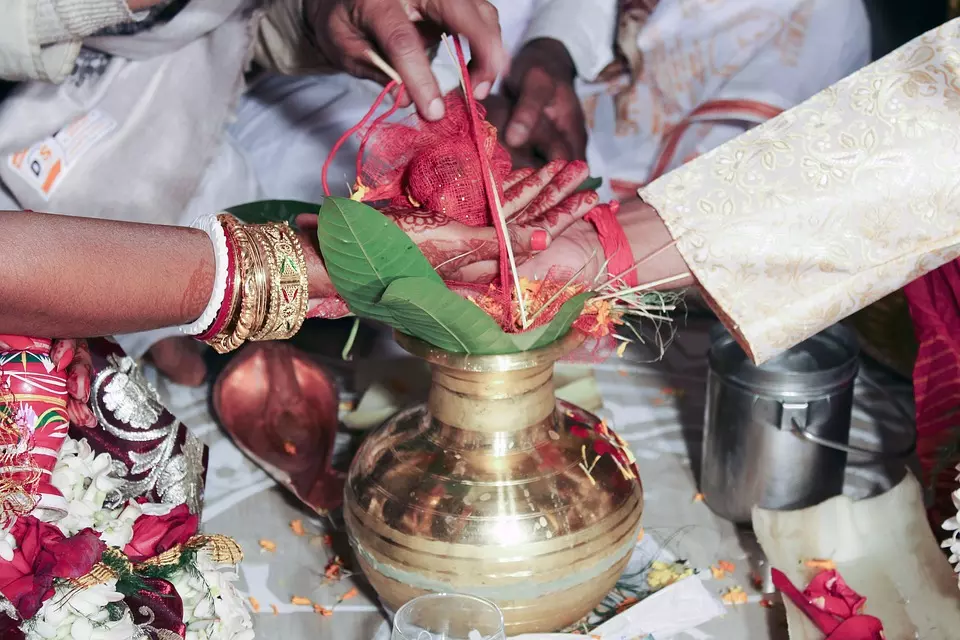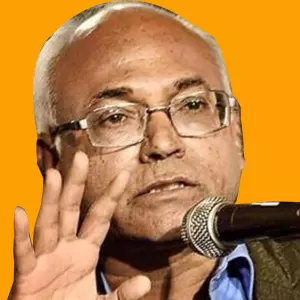
- Home
- India
- World
- Premium
- THE FEDERAL SPECIAL
- Analysis
- States
- Perspective
- Videos
- Sports
- Education
- Entertainment
- Elections
- Features
- Health
- Business
- Series
- In memoriam: Sheikh Mujibur Rahman
- Bishnoi's Men
- NEET TANGLE
- Economy Series
- Earth Day
- Kashmir’s Frozen Turbulence
- India@75
- The legend of Ramjanmabhoomi
- Liberalisation@30
- How to tame a dragon
- Celebrating biodiversity
- Farm Matters
- 50 days of solitude
- Bringing Migrants Home
- Budget 2020
- Jharkhand Votes
- The Federal Investigates
- The Federal Impact
- Vanishing Sand
- Gandhi @ 150
- Andhra Today
- Field report
- Operation Gulmarg
- Pandemic @1 Mn in India
- The Federal Year-End
- The Zero Year
- Science
- Brand studio
- Newsletter
- Elections 2024
- Events
- Home
- IndiaIndia
- World
- Analysis
- StatesStates
- PerspectivePerspective
- VideosVideos
- Sports
- Education
- Entertainment
- ElectionsElections
- Features
- Health
- BusinessBusiness
- Premium
- Loading...
Premium - Events

x
The RSS has to clarify whether it sees inter-caste marriages as part of Sanatana Dharma or Hindu tradition. Representative pic
RSS is against inter-caste marriages; it promotes discriminatory practices when it comes to non-veg vs veg food; how can caste system end?
Of late, in the context of Shudra/OBCs becoming very conscious of their numbers by demanding caste census at the national level, and also their historical location in the Dwija hegemonic society, the Rastriya Swayamsevak Sangh (RSS) has been talking about eradication/annihilation of caste from public platforms.
I have mentioned in an earlier article that Dattatreya Hosabale and other leaders were prescribing temple entry and water rights to Dalits/Shudras to eradicate caste. These two things are not only outdated but they have no potential to remove the social discrimination either.
I raised questions like priesthood rights for all Hindu castes that the RSS considers Hindu in Hindu temples, and also fighting against the graded indignity of labour that created a graded unequal caste system which will have serious implications for the eradication of the caste system.
In this piece let me look at the question of inter-caste marriages which the RSS does not want to promote, and also the egalitarian food culture, where the RSS itself is promoting meaterian-vegetarian-linked unequal and discriminatory practices in the society in general and at higher educational institutions in particular.
The meaterian vs vegetarian conflict is a casteist one. It does not help to eradicate caste but promotes casteist Brahminism in the civil society and public institutions like universities, leading to food-cultural conflicts. Such a divisive food culture between castes also comes in the way of inter-caste marriages. How? We will examine.
Power of two social institutions
These two social institutions, marriage and respectable inter-dining, have serious caste-abolition power. I deliberately call power because marriage and food cultural conditioning have tremendous power to unite or divide social groups. The caste marriage institution and socially segregated food cultural parampara (tradition) have sustained caste hierarchy for millennia. The caste-centered arranged marriage system is meant for caste-based separation of the DNA of people.
In the 100 years of existence of the RSS, there is no evidence, either in leaders’ speeches or writing, that it would encourage inter-caste marriages in order to eradicate caste. Dr BR Ambedkar suggested that inter-caste marriages will exchange blood relations between two segregated communities with different occupations. That will also advance the mental and physical abilities of the offspring, apart from weakening the caste of both partners.
Maybe with a view that such an inter-caste marriage of his own could prove that, he married Savita Ambedkar, woman from a Brahmin family. We do not have any information on how a Dalit, who normally eats meat and with western cultural exposure, and a Brahmin who grew up in an exclusively Indian environment, led their marital life. Either Savita or Ambedkar must have changed their food habits into pure vegetarian or mixed (meaterian and vegetarian) food. Or, they may have respected each other's food choices.
As the Indian youth of all castes aspire for higher education, the scope for inter-caste marriages is expanding. They are happening as well. But because of caste cultural rules, the inter caste marriages are generally not accepted by parents, for it carries a social stigma. In many cases, particularly where one partner is Dalit and the other is non-Dalit, the killing of such persons is a very common problem now.
How does the RSS, as a guide to the ruling BJP and as the biggest social organisation of India, deal with it? Society has no idea.
The RSS leaders constantly speak about maintaining Sanatana Dharma or Hindu parampara. Is inter-caste marriage part of Sanatana Dharma or Hindu parampara? Let the RSS make it clear to the nation. The eradication of caste is a critical project to sustain democracy in India. It is good that the RSS now speaks about the eradication of caste but, at the same time, it has to spell out the ways and means.
Inter-dining issues
The caste system has made inter-dining a major problem in India. For centuries, different caste people could not sit side by side and eat food. In urban areas, modern restaurant systems have created a caste-free eating ecosystem. But, in villages, it is still a major problem. In several schools, food cooked by Dalits are not being eaten by non-Dalit children. This is a problem of parampara. The RSS has not taken a stand against this practice.
The veg-non-veg problem has become a serious one in many IITs and other central institutes. Some Central ministers, as part of the RSS vegetarian culture, have asked institutions to adopt vegetarian-only menus. Smriti Irani was the first education minister to initiate steps, sending circulars saying only vegetarian food be served in central institutes and universities. Some heads of IITs, including IIT-Bombay, ordered separate allotments for veg and non-veg eaters. All this is because of the RSS ideology of vegetarian food parampara or practice of Sanatana Dharma of vegetarianism.
The Shudra/Dalits/Adivasis — leave alone Muslims and Christians — in India survive mainly by eating meat and veg food based on the availability. But their preferred food on festive occasions is meat. There is clear caste varna division in this food cultural parampara. Does the RSS want to give away the pure veg food culture of its own organisation or not? What stand does it take about people eating their own preferred food in public and private places? What is Hindu or Hindutva food culture? Is it pure vegetarian or mixed (meat and veg) food based on individual choice?
Democratisation of food culture based on personal preferences is one of the caste eradication issues. The RSS leaders never spoke about the food freedom of individuals or families. But now mixed food or pure veg are caste segregational practices. In South India, for example, all Shudra/Dalit/Adivasis are meat and veg eaters. Brahmins and Baniyas are pure veg eaters. Children are trained to eat that way in those castes.
Eradicating caste step by step
Without addressing these practices, how does the RSS plan to eradicate or abolish caste?
Thus, I could locate four social instruments that could be deployed to eradicate caste step by step, about which the RSS is silent.
1) Priesthood rights to all castes, which RSS thinks are Hindus, in Hindu temples. For that, opening theological schools and colleges with right to admission for all castes including Dalits/Adivasis and Shudras is a must.
2) Deploying massive teaching material about the dignity of labour of all occupations from tanning to pot making to barbering, tilling the land to teaching in schools and colleges.
3) Promoting inter-caste marriages by propagating that it is good in the interest of the nation, society, family and individual.
4) Inter-dining with choice and preference of individuals and with respect to others' food choices.
The present propaganda, including in the G-20 Summit in Delhi, that pure vegetarianism symbolises Hindu or Indian food culture, has to be stopped. The RSS must spell out its opinion on these issues if it is serious about the eradication/annihilation or abolition of caste.
(The writer is former director of the Centre for the Study of Social Exclusion and Inclusive Policy, Maulana Azad National Urdu University, Hyderabad)
(The Federal seeks to present views and opinions from all sides of the spectrum. The information, ideas or opinions in the articles are of the author and do not necessarily reflect the views of The Federal)
Kancha Ilaiah Shepherd is a political theorist, social activist and author. His latest book is The Clash of Cultures — Hindutva — Mullah Conflicting Ethics.
Next Story


